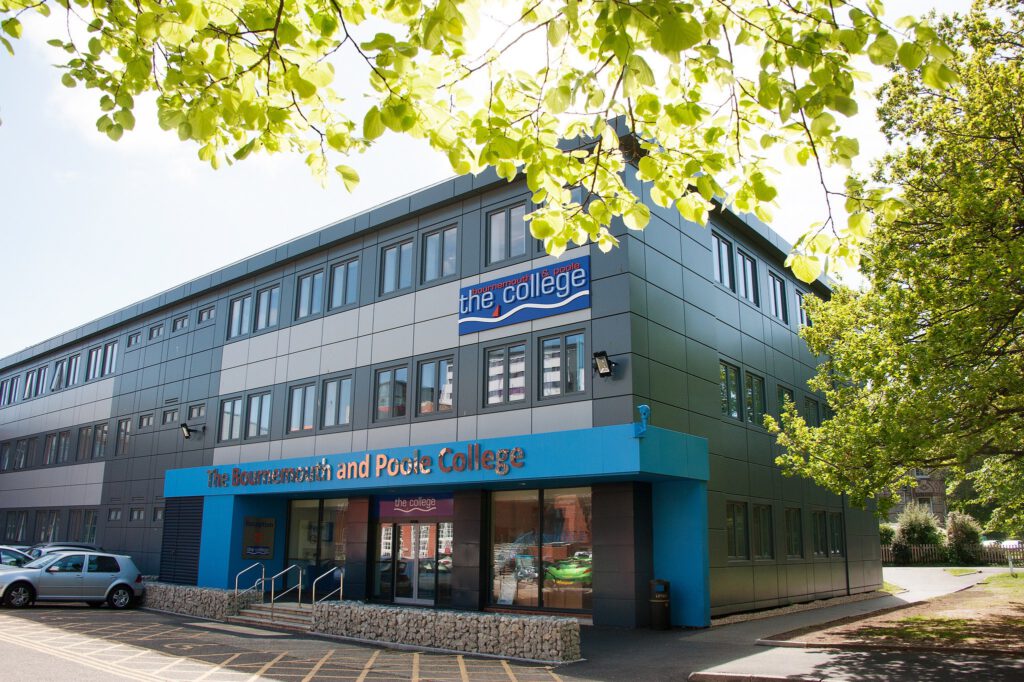Online learning during a pandemic: the digital shift at Bournemouth & Poole College

Keith Ball, ILT Technical Officer at Bournemouth & Poole College (@BPCollege) talks about the challenges brought on by the pandemic and the roll out of online and remote solutions to its students and teachers.
As coronavirus hit the UK, universities and colleges were faced with no choice but to close their institutions, move all resources online and adopt a remote working model for all students and teachers. While institutions such as BPC, had little time to prepare for the crisis, a 2019 report by Jisc suggests that the sector was in good shape to make the transition to online, with around half of students (FE: 48%, HE: 57%) stating they could easily access resources via their virtual learning environment (VLE).
Challenges brought on by the pandemic
One of the challenges we found at BPC was making sure that all of our students were in a position to work from home and easily access online learning resources. It was important to ensure that our students had the right connectivity and broadband in place, as well as laptops and devices, to be able to access their learning materials. We therefore made the decision to loan computers and even provide broadband and SIM card hubs to enable online access. This meant that we were able to support students that were based in rural areas without access to the internet, which is a growing problem across the sector.
One of the positives, for us at BPC, was that we were already in a position to adopt this new approach to learning and quickly implemented the digital shift to working online. Throughout the College, we have been using Moodle as our digital learning environment (DLE) and as a platform for our teachers and students to engage and access online learning materials. With this already in place prior to the pandemic, the system was able to deal with the increased traffic following the closure of our sites. The time of year meant that the College was not significantly impacted due to coursework already being completed, it therefore gave us more time to prepare for the next academic year.
Collaborative applications to boost online learning
Before the pandemic, we were already using Microsoft Office 365 so it became the natural step to roll out Microsoft Teams, the unified communications and collaboration platform. The pandemic has accelerated the rate of adoption, and the solution is now being used right across the College by both teachers and students to communicate and engage with online learning.
The shift to online learning has encouraged teachers to create more user-friendly content in the form of video, which can be uploaded to the DLE for students to access and engage with. The challenging period during lockdown has encouraged teachers to deliver learning differently; looking at utilising current resources in a more unique way. The delivery of online learning has had to change to meet the needs of our students and contribute towards a more effective experience for all. The new normal has encouraged teachers to implement a more flexible approach to teaching as learning can now take place online rather than the traditional face-to-face which can only take place in the classroom.
We’ve found that students are finding this approach to learning much more convenient as they can find an appropriate time to fit it in around their schedule. We are finding that students are accessing video course content through the DLE at 8 or 9 o’clock in the evening, which has increased overall interaction during the period.
Online learning for the long term
As lockdown restrictions ease, BPC will continue to maintain and enhance systems ahead of the new academic year. We also recognise the importance of being able to deliver blended learning throughout the institution. Practical courses are key at BPC, so it’s important that we’re able to offer these going forward, as well as being in the position to deliver lectures and lessons online for all students to access.
With our digital learning partner, CoSector – University of London, we’ve been looking at ways to develop and enhance the delivery of online assessment. Working with CoSector, we’ve been able to make improvements in the delivery of online lessons within the DLE – this has allowed teachers to create interactive lessons to provide a seamless user experience from start to finish. The lessons give the option of starting with a video and then linking to a quiz, which then provides answers upon completion. The responses provided by the students feed directly into the Moodle gradebook, generating real time assessment results for each user.
A vision for learning post-Covid
While both the DLE and Microsoft Teams have been used effectively during this period, we have been running the applications separately alongside each other. Therefore, we’ve been working with CoSector to install a plug-in to smoothly integrate both applications. When complete, this will allow students and teachers to link a Teams meeting via the DLE all in one application, making interaction with lessons and assignments more centralised. This will provide a much more fluid way of presenting online teaching and will allow us to track student engagement more effectively through the DLE.
As lockdown restrictions are gradually eased ahead of the next academic year, BPC will continue to monitor the situation. We realise the importance in welcoming students back on campus and being able to offer a blended learning model for our students. We will also continue to improve and develop an online learning model for the future to provide the best possible platform for our students to remotely engage in their studies. Communication between teachers and students has become paramount during this challenging period. The continued use of Microsoft Teams will prove crucial in providing a constant stream of communication between both teachers and students on and off the campus.











Responses